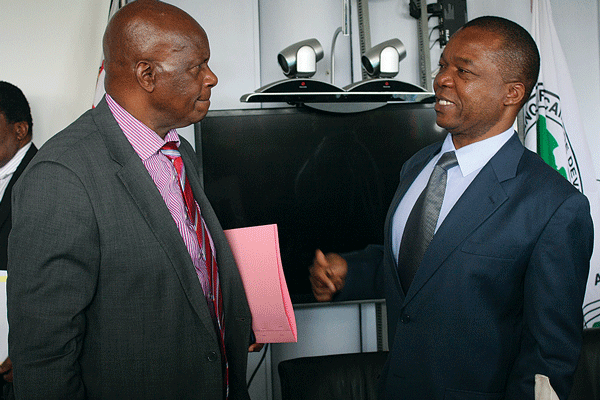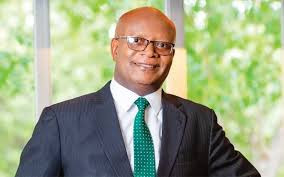
Finance minister Patrick Chinamasa’s pledge that the Reserve Bank of Zimbabwe (RBZ) will continue to give exporters incentives under a $200 million African Export-Import Bank (Afrexim Bank) loan scheme has raised eyebrows that the government wants to contract more debt.
By Fidelity Mhlanga

The loan facility was used to back the printing of bond notes, a United States dollar surrogate currency introduced by the RBZ late last year to ease cash shortages.
RBZ calmed the nerves of sceptical Zimbabweans by making assurances that the printing of the bond notes would be tied to the $200 million facility as they were meant to be incentives for exporters.
RBZ governor John Mangudya last month said the RBZ had since printed $140 million worth of bond notes and $23 million in bond coins, bringing the currency in circulation to $163 million.
According to RBZ’s commitment, it meant there was only a balance of $37 million in bond notes for the incentives.
However, Chinamasa’s recent statements at a Chamber of Mines meeting suggested that the government was prepared to go beyond the Afrexim Bank facility.
Economist Prosper Chitambara said the government could negotiate an extension of the Afrexim Bank facility to continue printing the bond notes.
- Chamisa under fire over US$120K donation
- Mavhunga puts DeMbare into Chibuku quarterfinals
- Pension funds bet on Cabora Bassa oilfields
- Councils defy govt fire tender directive
Keep Reading
He said the government was too broke to pay the incentives from its own coffers.
“They can negotiate for an increase of the facility or they can borrow money to fund the incentives,” Chitambara said.
“The government does not have the money, so they will have to borrow money to fund the incentives.
“The implication of that is that there is going to be indebtedness.”
Veteran economist John Robertson said he suspected the RBZ would pay the incentives by creating real-time gross settlement (RTGS) balances out of nothing.
“It seems we are going beyond the $200 million,” he said.
“We have to ask them, where will they get the money?
“After reaching $200 million exporters, the RBZ can pay exporters in the form of RTGS balances which can be created out of nothing “The dangers of this are inflation. It has consequences for the economy.”
Zimbabwe’s exports continue to perform badly largely because of the country’s difficult business environment and currency problems.
However, the mining sector is expected to earn $3 billion this year compared to $2 billion realised in 2016.
Meanwhile, Chinamasa has maintained that Zimbabwe would stick to the multi-currency regime until the macroeconomic fundamentals were in place.
There is constant uncertainty over the government’s plans to introduce a local currency as a solution to long-running cash shortages. “The multicurrency regime is going to continue,” Chinamasa said recently.
“I know in the newspapers there is a lot of debate and those debates are very healthy.
“The point of the matter is that the multi-currency regime will continue and there is no immediate return to the Zimdollar until we address the issues to do with fiscal and current account deficit and issues to do with the wage bill and so on.”
Zimbabwe abandoned its currency in 2009 after it was ravaged by world record hyperinflation.
The country adopted a basket of currencies but the US dollar, which is in short supply, has become the most preferred currency.










